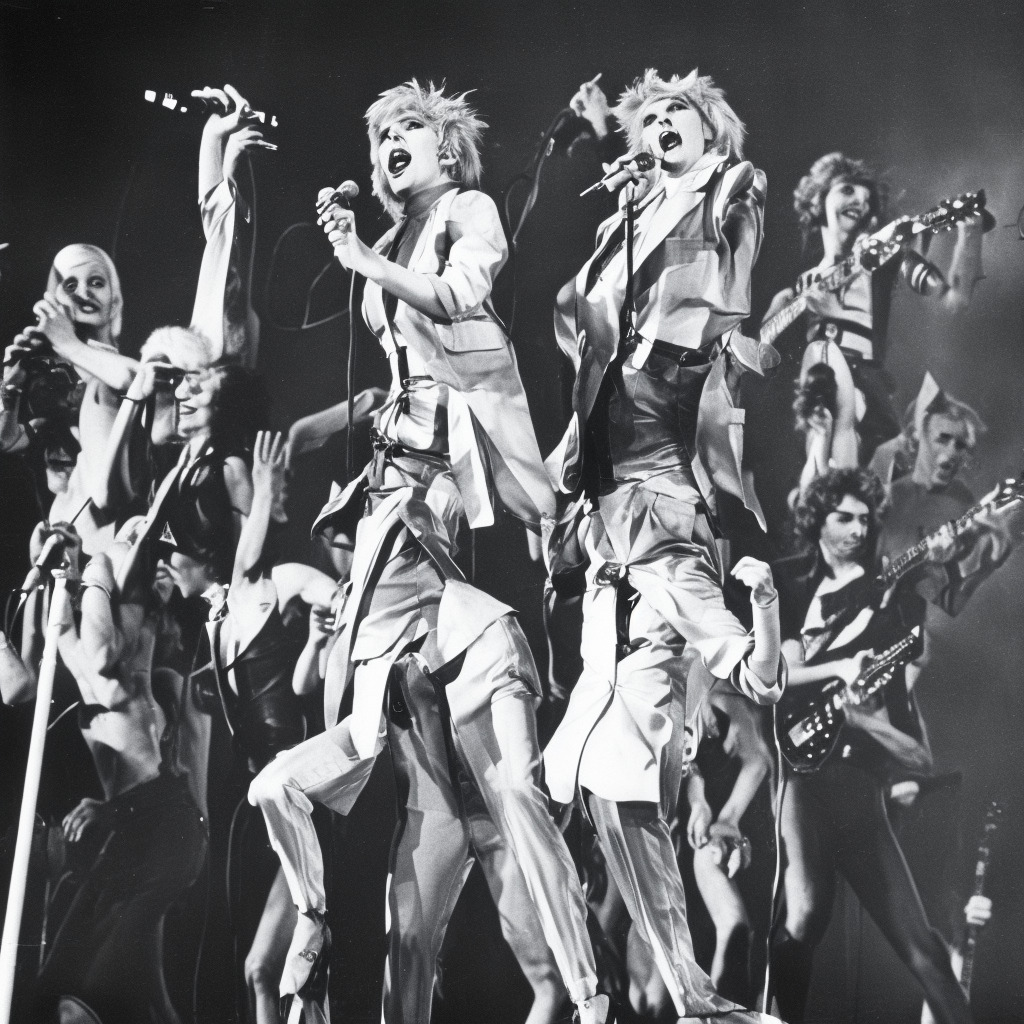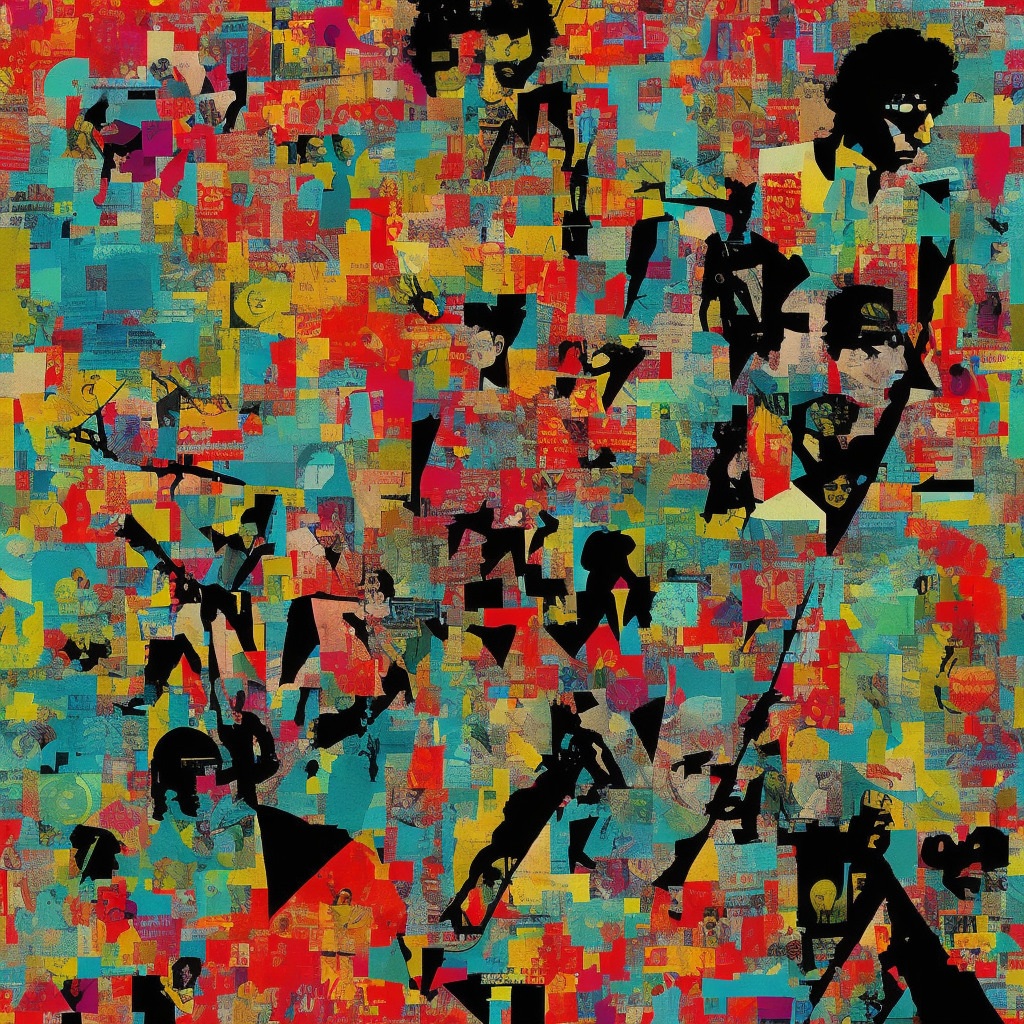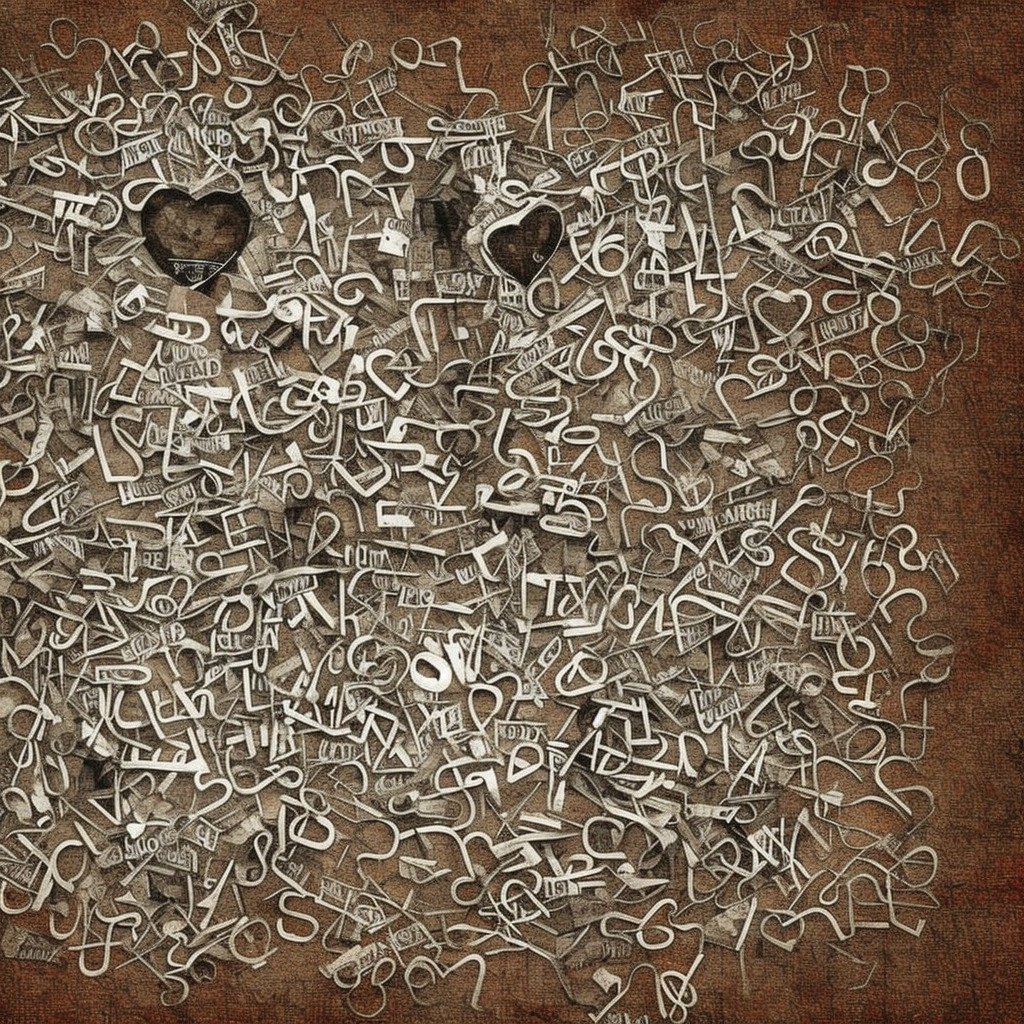🎶Did you know that Blondie’s iconic “Call Me” was born from a collab with disco legend Giorgio Moroder?🕺Debbie Harry penned the lyrics in just a few hours!⚡Talk about a power duo!💥 #Blondie #CallMe #MusicTrivia #GiorgioMoroder #80sVibes 🎸🎤 Read about it: tinyurl.com/3682cj2t
Blondie’s Timeless Masterpiece: The Story Behind the Track
Defying Genres & Defining a Generation: Blondie’s “Call Me” Captivates with Unforgettable Melodies and Fearless Innovation.

Throughout their extensive musical career, Blondie has amassed a devoted following and left an indelible mark on the music industry. This versatile and pioneering band, formed in 1974 by Debbie Harry and Chris Stein, has seamlessly blended various music genres such as punk, New Wave, and pop to create their unique and universally appealing sound.
Their classic 1980 hit “Call Me” still stands as a testament to the band’s musical prowess and ability to captivate audiences worldwide. The song was produced by the legendary Giorgio Moroder, who had initially approached Stevie Nicks of Fleetwood Mac to collaborate on the track. However, due to contractual issues, Nicks was unable to participate, and Moroder turned to Blondie, then at the peak of their fame.
“Call Me” served as the theme song for the film “American Gigolo,” starring Richard Gere, and was an instant hit. The song’s driving beat, catchy melody, and Harry’s sultry vocals combined to create an unforgettable sound that quickly soared to the top of the charts. It held the number one spot on the Billboard Hot 100 for six consecutive weeks and became one of the band’s most iconic and enduring hits.
While Blondie’s polished and infectious sound was one of their greatest assets, it’s worth noting that it wasn’t free of criticism. Some critics and purists accused the band of “selling out,” especially when they experimented with the early hip-hop genre in their 1981 hit “Rapture.” However, Blondie’s fearless approach to blending genres and pushing musical boundaries ultimately cemented their status as innovators in the industry.
The band’s impressive career has earned them numerous awards and accolades. In 2006, they were inducted into the Rock and Roll Hall of Fame, a fitting recognition of their significant influence in shaping the musical landscape. Despite multiple lineup changes throughout the years, the core members – Debbie Harry, Chris Stein, and drummer Clem Burke – have remained steadfast in their commitment to the band’s creative evolution.
In conclusion, Blondie’s “Call Me” serves as a shining example of the band’s undeniable talent and boundary-pushing musical style. This timeless classic remains a musical gem that continues to captivate fans and inspire future generations of musicians.
Chart-topping Phenomenon
Blondie’s scorching hit, “Call Me”, captivated fans worldwide, climbing charts and earning accolades with its sultry energy and chart-topping legacy.
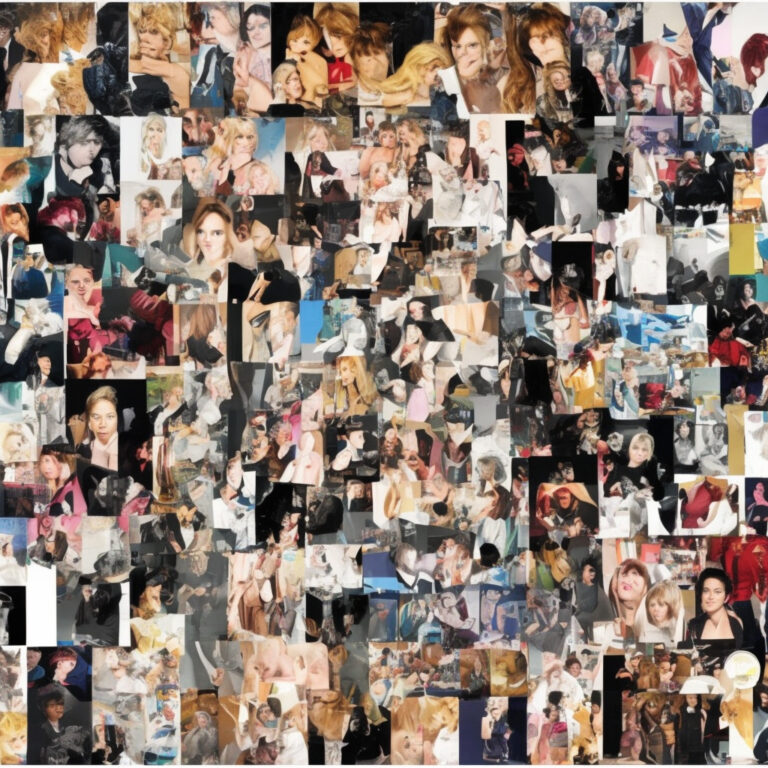
When it comes to chart success, “Call Me” stands out as a true powerhouse in Blondie’s discography. Released on February 1, 1980, as the theme song for the film “American Gigolo,” this energetic and sultry track quickly became a fan favorite and dominated the charts like no other.
Upon its release, “Call Me” made an impressive debut on the Billboard Hot 100 chart at No. 76 on February 16, 1980. But it didn’t stop there; the song rapidly climbed the chart, reaching the coveted No. 1 position just nine weeks later on April 19, 1980. “Call Me” then went on to maintain its reign at the top of the chart for an incredible six consecutive weeks, showcasing the song’s infectious appeal and cementing its legacy as one of Blondie’s most successful singles.
Internationally, “Call Me” also had a massive impact, reaching No. 1 in Canada and the United Kingdom. In fact, the song was the best-selling single of 1980 in the UK, further highlighting its widespread popularity. The success of “Call Me” didn’t stop there, as it also charted highly in various other countries, including Australia, Germany, Italy, and South Africa.
This chart-topping success wasn’t the only accolade “Call Me” garnered during its time. The track was also nominated for a Grammy Award for Best Rock Performance by a Duo or Group with Vocal in 1981. Furthermore, “Call Me” was ranked No. 283 in Rolling Stone’s list of “The 500 Greatest Songs of All Time” in 2004, and No. 57 in Blender’s list of “The 500 Greatest Songs Since You Were Born” in 2005.
Clearly, “Call Me” had a significant impact on both the charts and popular culture, standing as a testament to Blondie’s unique sound and undeniable talent.
Dissecting the Lyrics of a Timeless Hit
Color me your color, baby
Color me your car
Color me your color, darling
I know who you are
Come up off your color chart
I know where you’re coming from
Call me (call me) on the line
Call me, call me any, anytime
Call me (call me) my love
You can call me any day or night
Call me
“Call Me” by Blondie, released in 1980, is a song that captures the essence of its era with its infectious melody and catchy lyrics. The song’s lyrics are a reflection of the late ’70s and early ’80s, a time when people were embracing their individuality and exploring self-expression. This period was marked by the rise of punk and new wave music, as well as the emergence of various youth subcultures.
At its core, the lyrics of “Call Me” convey a sense of urgency and desire for connection. The repeated refrain “Call me, call me any, anytime” emphasizes the need for communication and the longing to be close to someone, be it in a romantic or platonic context. In the era of the song’s release, this sentiment would have resonated with many listeners, as it was a time when people were beginning to redefine relationships and push social boundaries.
Furthermore, the lines “Color me your color, baby” and “I know who you are” suggest a sense of personal identity and the desire to be recognized and accepted by others. This theme is further reinforced by the mention of a “color chart,” which could be interpreted as a symbol of the various subcultures and lifestyles that were emerging during this time.
In conclusion, the lyrics of “Call Me” by Blondie encapsulate the spirit of the time and the events of the era in which it was written. Through its exploration of themes such as identity, connection, and self-expression, the song remains a timeless classic that continues to resonate with listeners today.
The Iconic Music Video That Graced Our Screens
Experience the vibrant 80s: Blondie’s “Call Me” music video encapsulates the era’s essence through its dynamic visuals, iconic fashion, and a timeless tune that continues to permeate pop culture.
The music video for Blondie’s “Call Me” is more than just a visual treat; it’s an iconic representation of the band and the 80s music scene. Directed by the talented Australian filmmaker, David Mallet, this video captures the essence of Blondie in its prime, with its catchy tunes and charismatic energy. Mallet is well-known for his work with other prominent artists such as David Bowie, Queen, and AC/DC.
The video was filmed at various locations in and around New York City, showcasing the urban landscape and gritty vibe of the city during this time. It features lead singer Debbie Harry in a series of stunning outfits and iconic hairstyles, performing the song in various locations. Her captivating presence is complemented by the band’s energetic performance, and the editing style is quintessentially 80s, with quick cuts and dynamic visuals that bring the song to life.
While the exact budget of the “Call Me” music video is not publicly disclosed, it is clear that the production value was high for its time. The use of multiple locations, stylish wardrobe, and innovative editing techniques contributed to the overall impact and artistic approach of the video. It’s worth noting that the song was the band’s most significant hit in the United States, staying at number one on the Billboard Hot 100 chart for six weeks.
In the absence of an official music video for “Call Me,” fans have taken it upon themselves to create their tributes and interpretations of the song. YouTube is filled with various fan-made music videos, lyric videos, and live performance compilations that showcase the song’s enduring popularity and impact on popular culture.
Additionally, the song has been featured in numerous TV shows, movies, and commercials, further solidifying its status as a pop culture staple. Some notable examples include the film “American Gigolo,” which prominently features the song as its main theme, and the popular Netflix series “Stranger Things,” where the track is played during a pivotal scene in season two.
Overall, Blondie’s “Call Me” music video and its various fan tributes and media appearances continue to resonate with audiences and stand as a testament to the band’s lasting influence on music and popular culture.
The Mastermind Behind “Call Me”: Debbie Harry and Giorgio Moroder
When talking about the composer of the iconic song “Call Me,” the spotlight is shared by Blondie’s lead vocalist Debbie Harry and legendary Italian music producer Giorgio Moroder. Although Harry co-wrote the line, Moroder is the one who composed the music and co-produced the track. This collaboration resulted in a vibrant and unforgettable song that marked the 80’s era.
Giorgio Moroder is a renowned composer, producer, and songwriter, who has played a significant role in shaping the world of electronic music. Some of his notable compositions include “Love to Love You Baby” by Donna Summer, “Flashdance…What a Feeling” by Irene Cara, and “Take My Breath Away” by Berlin, all of which have become timeless classics in the music industry. As for Debbie Harry, her songwriting prowess has not only contributed to Blondie’s success, but also to her impressive solo career, where she released hits like “French Kissin’ (in the USA)” and “I Want That Man.” Together, Harry and Moroder perfectly blended their talents in “Call Me,” creating an infectious tune that has stuck with music enthusiasts for decades.
A Legacy of Accolades and Impact on Pop Culture
“Call Me” – Blondie’s timeless 1980 hit that ruled the charts, conquered pop culture, and inspired countless covers across genres.
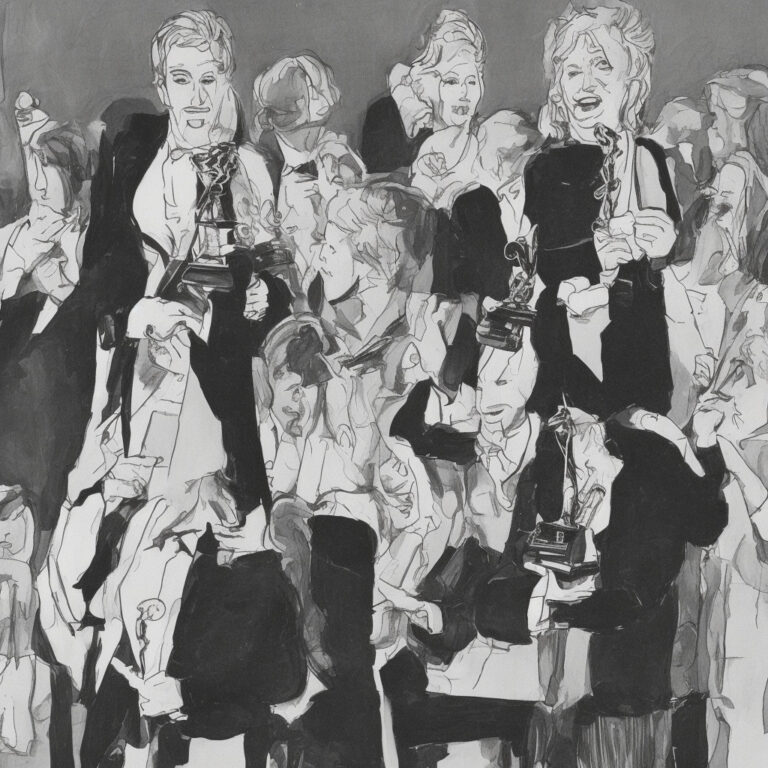
“Call Me” has undeniably left an indelible mark on the music scene since its release in 1980. This Blondie classic has garnered numerous well-deserved accolades and achievements throughout the years. The song was a smashing success, holding the number one spot on Billboard Hot 100 for six weeks straight and earning the title of Billboard’s top song of the year. In 2003, “Call Me” was ranked number 283 in Rolling Stone’s list of “The 500 Greatest Songs of All Time,” further solidifying its status as a timeless hit.
The song’s popularity extends beyond the music world, as it has made its impact felt in various forms of media. “Call Me” initially gained momentum as the theme song for the 1980 film “American Gigolo.” Its catchy hook and energetic sound quickly captured the attention of audiences and contributed to the movie’s success. Since then, the song has made appearances in numerous movies, TV shows, and commercials, including popular TV series such as “Glee” and “The Simpsons.” The song has also been included in the soundtrack of video games like “Grand Theft Auto: Vice City Stories” and the “Rock Band” series, further reflecting its widespread appeal and relevance in modern pop culture.
Fascinatingly, “Call Me” has also inspired several cover versions by various artists, spanning a diverse range of music genres. Notable cover renditions include the 1989 version by In This Moment, which added a unique metal twist to the iconic new wave hit. Punk band The Dollyrots also paid homage to the song with their energetic cover in 2014. Even jazz musicians like the Grammy-winning Robert Glasper have joined the “Call Me” cover club, with Glasper delivering a soulful, jazz-infused take on the song in 2013.
In conclusion, “Call Me” has proven to be a true musical gem, standing the test of time and continuing to be celebrated by musicians and fans alike. Its numerous awards, pop culture appearances, and cover versions all attest to the lasting impact and influence of this iconic Blondie hit.
Dissecting the Musical Elements
Diving into the musical structure of “Call Me,” we find that the song is written in the key of D Minor, giving it that perfect balance of energy and edginess. The chord progression mainly revolves around Dm – A – C – G, with slight variations in the chorus and bridge sections. This progression lends the song a sense of familiarity, while still giving it plenty of room for the band to inject their unique flair.
The tempo of “Call Me” is set at a lively 142 beats per minute, which contributes to its infectious danceability. The driving beat and pulsating rhythm are the backbone of the song, with the bass and drums laying down a solid foundation for the other instruments to build upon. The bassline, in particular, is a standout feature of the track, providing a groovy, syncopated pattern that complements the steady kick drum.
Synthesizers also play a crucial role in the song’s sonic landscape. The synth riff that opens the track immediately grabs the listener’s attention and sets the stage for the catchy melody that follows. Throughout the song, the synths add layers of texture and depth to the mix, creating a rich tapestry of sound that keeps the listener engaged from start to finish.
Debbie Harry’s vocals are, of course, another key ingredient in the magic of “Call Me.” Her voice soars above the instrumentation with a powerful yet sultry quality that perfectly captures the essence of the song’s lyrics. The vocal melody is both memorable and dynamic, featuring a range of notes that showcase Harry’s impressive vocal abilities.
One element that makes “Call Me” particularly interesting is the use of call-and-response between the lead vocals and the backing vocals in the chorus. This technique adds a sense of urgency and excitement to the song, as well as giving it a slightly playful vibe. Additionally, the backing vocals are cleverly panned in the stereo mix, giving the listener the impression that the voices are surrounding them from all angles.
Lastly, let’s not forget the stellar guitar work that shines throughout “Call Me.” The electric guitar riffs are catchy and perfectly complement the synth parts, while the occasional bursts of distorted power chords add an extra layer of intensity to the track. The guitar solo that comes in towards the end of the song is a true highlight, showcasing both technical skill and an innate sense of melody.
Overall, “Call Me” is a masterclass in songwriting and arrangement, with its compelling blend of catchy hooks, energetic tempo, and engaging instrumentation. It’s no wonder this track has stood the test of time and continues to be a favorite among music lovers of all ages.

